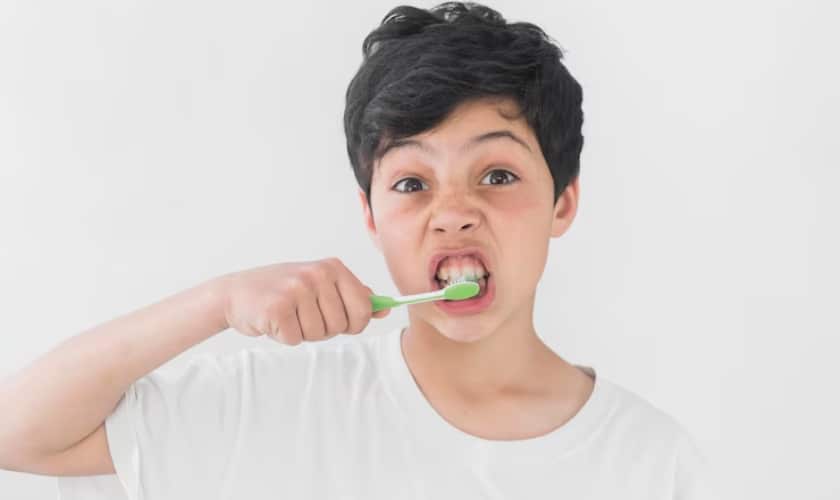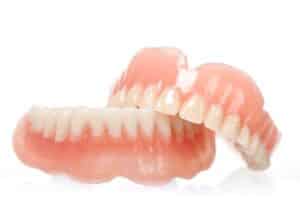Gagging during brushing is a common issue, particularly for those with a sensitive gag reflex. The gag reflex is typically less triggered during exhalation but becomes more pronounced when holding a breath or inhaling. Cleaning the tongue regularly is crucial for maintaining oral health because the tongue harbors a significant bacterial load, which can transfer to the teeth and gums. However, some individuals struggle with tongue cleaning due to the unpleasant gag reflex. Experimenting with alternative techniques can help ensure effective tongue cleaning without triggering the gag reflex.
There are various methods to reduce gagging, depending on the cause of this reaction. In this blog, we will discuss strategies to help you stop gagging when brushing your teeth.
Reasons for Gagging
Gagging, a natural reflex controlled by the gag reflex, can be triggered by various factors. Understanding these reasons is essential for managing and addressing the discomfort associated with gagging. Here are some common causes:
Overactive Gag Reflex
The sensitivity of the gag reflex differs among individuals, with some having an overly sensitive gag reflex, predisposing them to gagging more easily in response to stimuli. This heightened sensitivity may stem from genetic factors and individual differences in anatomy and physiology. Understanding these variations is vital for tailored approaches to managing gag reflex discomfort, ensuring personalized care for those prone to heightened sensitivity.
Dental Issues
Poor dental health, encompassing conditions like cavities, infections, or poorly fitted dental appliances, can exacerbate gagging sensations. Resolving underlying dental issues through proper treatment and maintenance can significantly alleviate discomfort associated with gagging. By addressing these dental concerns, individuals can experience improved oral health and reduced sensitivity to stimuli that trigger the gag reflex.
Gastroesophageal Reflux Disease (GERD)
GERD, characterized by the backward flow of stomach acid into the esophagus, can lead to irritation and provoke gagging episodes. Effectively managing GERD involves implementing lifestyle modifications and medications to alleviate symptoms and reduce the frequency of gagging episodes. By addressing the underlying cause of acid reflux, individuals can experience relief from gagging discomfort and improve their overall quality of life.
Anxiety and Stress
Emotional factors like anxiety or stress can amplify the sensitivity of the gag reflex. Employing relaxation techniques, seeking counseling, or practicing mindfulness can help manage these emotional triggers effectively. By addressing underlying stressors, individuals can mitigate the impact of emotional factors on gag reflex sensitivity, promoting greater comfort and well-being.
Nasal or Sinus Issues
Congestion, sinus infections, or nasal obstructions can induce mouth breathing, disrupting airflow and potentially activating the gag reflex. Resolving nasal or sinus issues through appropriate treatments, such as decongestants or nasal irrigation, can help restore normal breathing patterns and alleviate gagging discomfort. By addressing these underlying respiratory concerns, individuals can experience relief from gag reflex sensitivity and improve their overall respiratory health.
Dental Procedures
Certain dental procedures, particularly those involving impressions, X-rays, or instruments placed deep in the mouth, can trigger the gag reflex. Dentists employ various techniques to mitigate discomfort during these procedures, such as using smaller instruments, applying numbing agents, or employing distraction techniques. By employing these strategies, dental professionals aim to minimize gagging sensations and enhance patient comfort during treatment, ensuring a more positive dental experience.
Tonsil or Throat Infections
Infections in the tonsils or throat can heighten the sensitivity of the gag reflex. Addressing the underlying infection through appropriate medical treatment, such as antibiotics or antiviral medications, can effectively alleviate gagging symptoms. By targeting the root cause of the infection, individuals can experience relief from heightened gag reflex sensitivity and improve their overall throat health.
Certain Medications
Certain medications, especially those with potent tastes or odors, can trigger gagging upon ingestion. Consulting with a dental provider to explore alternative medications or adjust dosages can be beneficial. By addressing medication-related triggers, individuals can minimize gagging episodes and improve their medication adherence and overall well-being.
Ways to Prevent Gagging When Brushing Teeth
Gagging during brushing can be a frustrating experience, particularly for those with a sensitive gag reflex. Here are some effective techniques to help you prevent gagging while maintaining your oral hygiene routine.
1. Relaxation Techniques
To avoid gagging during brushing, start by keeping things relaxed. Anxiety about brushing can trigger a gag reflex, disrupting your oral hygiene routine. Try the 4-4-4 method: inhale slowly for 4 seconds, hold for another 4 seconds, and exhale slowly for 4 seconds. This technique reduces anxiety and stress by activating the parasympathetic nervous system, which slows your heart rate and relaxes muscles and the mind. Give it a shot during your next brush and notice the difference!
2. Change Your Tongue Brushing Technique
When brushing your tongue, be mindful of the gag reflex, which can be triggered by touching areas like the back of your tongue or tonsils. Follow these steps to avoid triggering it:
- Brush and floss your teeth first.
- Use a soft-bristled toothbrush moistened with water.
- Opt for a tongue brush with shorter bristles for better cleaning.
- Start brushing your tongue from the tip in small circular motions.
- Gradually move toward the back of the throat, rinsing the brush as needed.
- Stop just before reaching the area that triggers the gag reflex.
- If you start to gag, you’ve gone too far. Adjust and continue without discomfort.
3. Change Your Toothbrush
To prevent gagging while brushing, consider changing your toothbrush. Large toothbrush heads can trigger the gag reflex by taking up too much space in your mouth. Opt for smaller toothbrushes or even try a children’s toothbrush. Electric toothbrushes can also be a great option, as they handle most of the cleaning work for you. This way, you can focus on gently touching your teeth and reduce the chance of hitting the roof of your mouth or the back of your tongue, where the reflex is more likely to kick in.
4. Brush from a Different Angle
Improve your teeth-brushing technique by changing the angle of your toothbrush against your teeth. Pay attention to where the toothbrush head is hitting during your brushing routine. If you notice it frequently hitting your tongue, experiment with different approaches. Try brushing vertically, diagonally, and horizontally to find the most comfortable position and ensure you’re brushing your teeth properly.
5. Try a Psychological Trick
Outsmart your gag reflex by engaging your mind to distract from what’s happening in your mouth. Try clenching your fist and gently pressing your nails into your palm to create a mild sensation that shifts your focus away from the gag reflex. Another trick is to occupy your thoughts:
- Pick a riddle or a challenging math problem before you start brushing.
- As you gently brush your tongue, starting at the front, concentrate on solving the puzzle or math problem.
- Move towards the back of your tongue without going too far, and you might find that this mental distraction helps ease the gag reflex.
6. Conserve Toothpaste by Using a Smaller Amount and Switch to a Different Flavor
Gagging during brushing might be linked to the excessive use of toothpaste. Reduce the amount you apply to just a small smear for a taste without overwhelming your senses—aim for a pea-sized quantity. Spit out any excess saliva that accumulates during brushing. Similar to the mouthwash method, experimenting with different toothpaste flavors can minimize the likelihood of gagging. Discover a flavor you enjoy and apply a small amount each time, avoiding an excessive quantity that may increase the risk of gagging. Start with a minimal dab if needed, and take it step by step!
7. Embrace Mouthwash Moments
Integrate the power of mouthwash into your oral care ritual to combat cavity-causing bacteria and promote gum health. Consider it not only a hygiene step but also a flavorful diversion. Discover a mouthwash flavor that delights your senses and makes it a refreshing part of your brushing routine.
With all these techniques to maintain oral hygiene and prevent gagging, you can also try using a washcloth while flossing. Experiencing discomfort and feeling like you’re in a constant struggle when dealing with gagging can be disheartening. However, employing these methods, coupled with a touch of patience, can transform your oral care routine for the better. Prioritizing good oral hygiene is essential for the long-term health of your smile. Don’t allow gagging to hinder your ability to take proper care of yourself. Remember to consult with your dental professional for additional personalized tips and techniques to minimize gagging during your teeth brushing and flossing routine.





